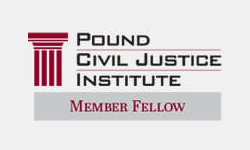Restraining Orders
Providing Legal Aid to Victims of Domestic Violence
A restraining order is a court order issued by a judge in civil court, which tells an abuser to put an end to the abusive behavior that warranted the order. Failing to comply with a restraining order will result in serious legal consequences. In Rhode Island, a district court or family court can issue restraining orders.
Domestic Abuse in Rhode Island
To obtain a restraining order, an abuser must have committed one of the following acts:
- Caused or attempted to cause physical harm, with or without a weapon
- Threatens an individual with a weapon, or places that person in fear of physical harm
- Forces an individual to have sexual relations against his or her will, whether through physical force, the threat of force, or duress
- Harasses or maliciously follows an individual with the intent cause fear
- Cyberstalks
Types of Restraining Orders
Courts offer both temporary and permanent restraining orders, depending on the circumstances of a case. They are also sometimes referred to as protective orders.
Emergency Restraining Orders
Emergency orders can be granted if the courts are closed and an individual is in immediate need of protection. It can be ordered ex parte, meaning that the abuser would not have to be notified or present. If received over the phone, this type of restraining order expires at the close of the next business day.
Temporary Restraining Orders
These orders may also be granted ex parte. It is intended to offer protection until the full court hearing for a final restraining order. A judge will read a victim’s verified complaint and grant the order if he or she believes the individual may suffer immediate or severe injury, loss, or damage without it. This type of order usually lasts 21 days, though it can be extended if the final court hearing is adjourned beyond this timeframe.
Final Order
After a full court hearing in which both the victim and the abuser are able to present evidence and testimony, a final restraining order may be issued. If the abuser is not present, but was given proper notice, the final restraining order can still be issued. This type of order lasts up to 3 years, though it can be extended if a judge believes it is necessary.
Rhode Island Domestic Violence Lawyers
If you have been hurt by or accused of committing domestic violence, the Rhode Island domestic violence attorneys can offer you the strong legal support you need. We have an in-depth understanding of these types of cases and are here to protect your best interests. This is undoubtedly a difficult time for you, but you do not have to face it alone.
Call us today at 401-400-4254 for a free initial consultation.
TJC • ESQ is now a part of Burns & Levinson, one of the largest and most respected family law firms in the nation. Learn more.










